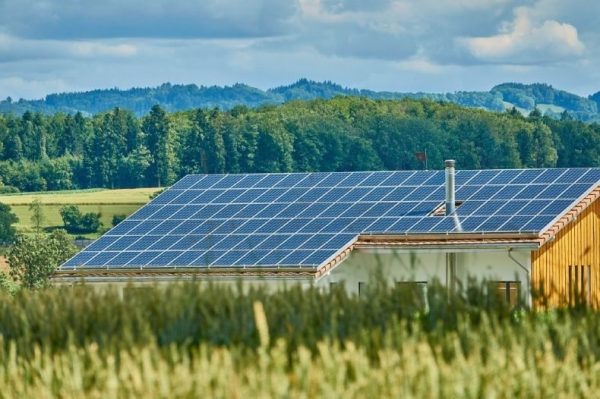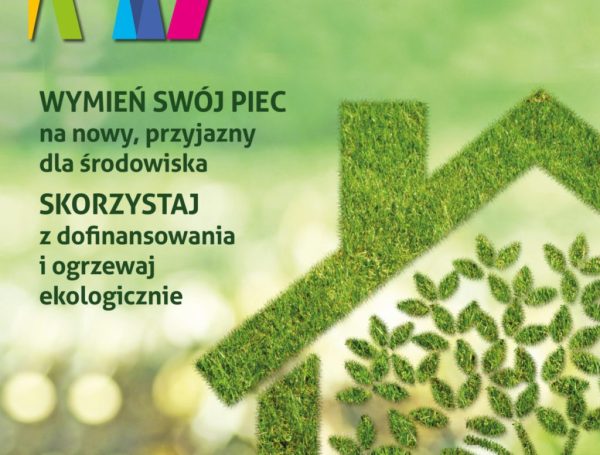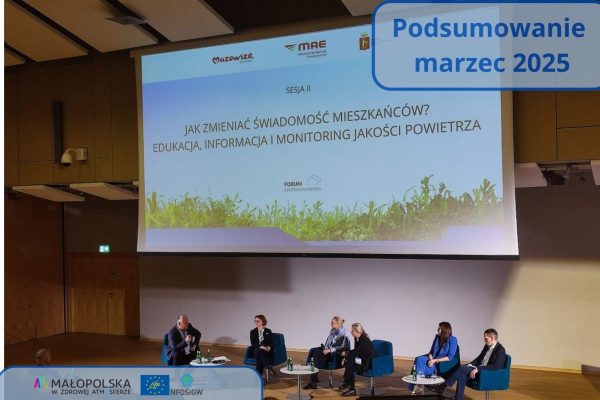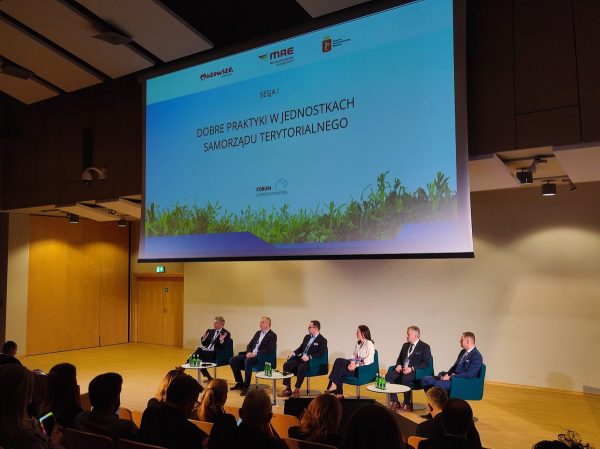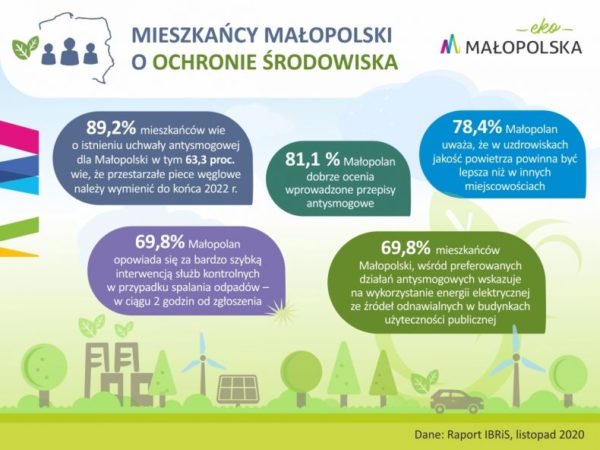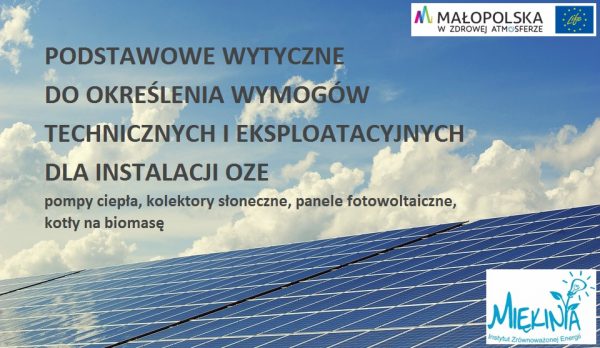Update of Air Quality Plan for Małopolska Region
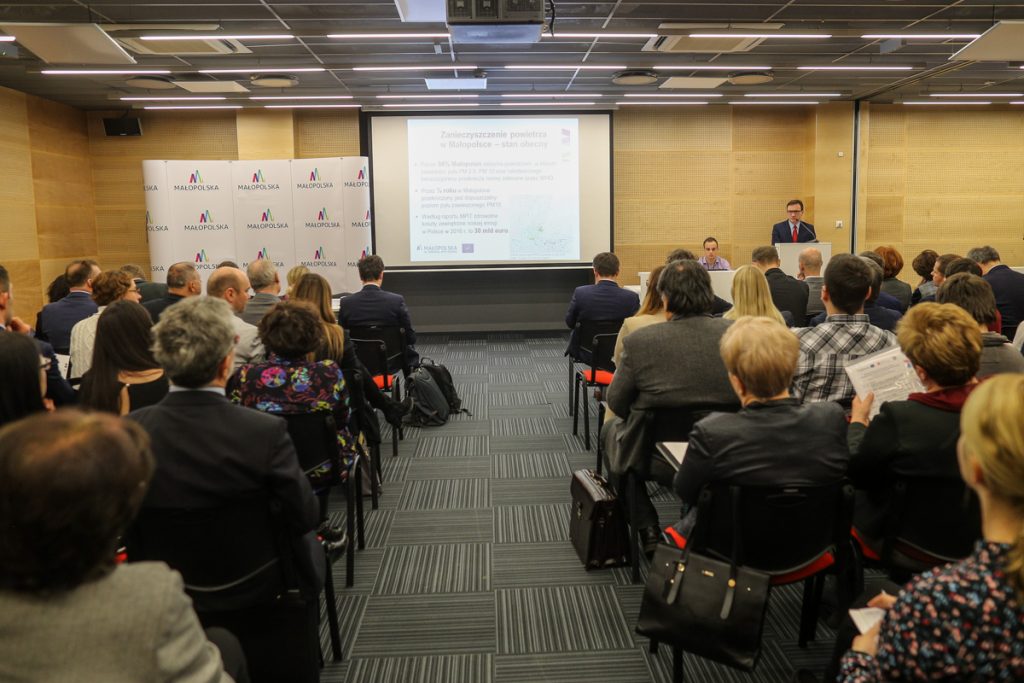
On February 11 this year, there was an initial consultation meeting regarding the update of Air Quality. The consultations were attended by invited representatives of the Ministry of Entrepreneurship and Technology, the Malopolska Region local government, specialists and residents.
Air Quality Plan for Małopolska Region sets out activities aimed at achieving the permissible levels of air pollutants: PM10, PM2,5, benzo (a) pyrene, nitrogen dioxide and ozone in the Malopolska Region up to 2023. At the same time, the Program is a basic tool thanks to which local governments implement their own Low Emission Economy Plans.
As many as 98% of Malopolska Region residents breathe air of poor quality, therefore local governments’ obligations are very high. A Clean Air Council shall be established soon, it will be a forum for exchanging experiences and striving for a common goal of clean air – Tomasz Urynowicz said – Deputy Marshal of the Malopolska Region.
Setting goals
The main directions of activities in the field of air protection include: reducing emissions from low-efficiency devices using solid fuels, transport and industry. Environmental education and improvement of airing conditions of cities and the protection of green areas will also be significant issues.
Poland ranks third in Europe in terms of premature deaths. The economic costs associated with premature deaths caused by air pollution amount to approx. 13% of GDP. The costs do not include hospitalization and treatment – professor Ewa Konduracka, a cardiologist, specialist in internal medicine, emphasized.
In correlation with government programs, support for thermal modernization of buildings and energy-saving construction in housing and public facilities shall be of key importance.
It is impossible to solve the problem of air pollution in Poland without very close cooperation between the government and the local government. I assure you that if there is a chance to support work related to updating air quality plan, we will gladly provide such assistance – Piotr Woźny declared – Prime Minister’s Plenipotentiary for the “Clean air” government program.
Improving air quality is the use of renewable energy sources, extending and modernizing heating networks and gas networks ensuring the connection of new users were other important elements of actions. Access to low-emission heating sources is a significant determinant affecting the choice of installations. Moreover, the starting point for undertaking corrective actions will be the inventory of pollutant emissions. In order to determine the impact of individual emission sources on air quality, modeling of the spread of pollutants will be carried out with high accuracy.
Identification of emission sources and knowledge of how they spread will be binding. Thanks to this, we know where to work the most and the most efficiently – professor Wojciech Suwała – the Dean of the Faculty of Energy and Fuels of the AGH University of Technology in Krakow, added.
More measurement stations
An agreement was signed between the Prime Minister’s Plenipotentiary for the Clean Air programme, the Ministry of Entrepreneurship and Technology, the Chief Inspectorate Of Environmental Protection, the Malopolska Region and the Krakow Smog Alert Association during the meeting. The subject matter of the agreement is cooperation within organizing PM10 and benzo (a) pyrene measurements in the PM10 particulate matter. The measurements will be carried out for two more towns in the region.
Thanks to the measurement stations, awareness and activity are increased – Paweł Ciećko – the Chief Inspector of Environmental Protection – emphasized.
The results of the research will be available on the sites of the Malopolska Region and the association. The Krakow Smog Alert will conduct air pollution testing with PM10 suspended dust using equipment meeting the requirements of state environmental monitoring. The Chief Inspectorate Of Environmental Protection will be responsible for weighing filters from dust collectors. He will also carry out the designation of benzo (a) pyrene from the filters provided by the Krakow Smog Alert Association.
The measure of the success of air quality plans is improvement measured by such indicators as: concentrations of particulate matter, polycyclic aromatic hydrocarbons, nitrogen oxides – Andrzej Guła – President of the Krakow Smog Alert – said.
New solutions
The Marshal, Tomasz Urynowicz, also announced work on lowering alert thresholds and informing on exceeding the level of dust suspended in the air. It would be an action distinguishing the Malopolska Region in the whole country. This idea was referred to by the Director of the Delegation of the Supreme Audit Office in Krakow, Jolanta Stawska. She pointed out that the alert levels in Poland are among the highest in Europe. In Switzerland, they are 4.5 times lower than in Poland.
As a result of widely conducted consultations, the Malopolska Region will proceed with the update of Air Quality Plan for Małopolska Region. Through the invitation of local governments, residents and specialists from various industries to consult, the region authorities would like to involve the interested parties in the preparation of the update at an early stage. As a result, a comprehensive program will be created to effectively combat air pollution in our region.
Submit suggestions
Comments and conclusions to the assumptions of the program can be submitted by 31 March 2019 to the following e-mail address: [email protected] or in writing to the following address: Marshal’s Office of the Malopolska Region, Environment Department, 56 Racławicka Street, 30-017 Krakow. The Management Board of the Malopolska Region is the authority competent for the consideration of comments and requests.


